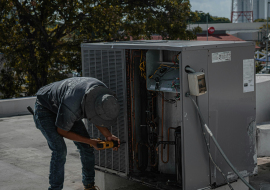How to enroll for public services without registering at your current address
How to set up public services without establishing residency?

In compliance with Italian regulations, it is feasible to have public services under your name even without being a registered resident. Since 2017, Italy has implemented a new pricing system for utilities, equalizing the costs of electricity and gas for both registered and unregistered inhabitants. Nonetheless, distinctions in fee application persist for residents and non-residents within the billing system.
What sets apart the charges for residents and non-residents?
As specified by the Energy and Environment Regulatory Authority (ARERA), utilities can be billed to a consumer for:
- Any type of dwelling, regardless of primary residence status.
- Additions or utility spaces (such as basements, garages, or studios).
- Private electric vehicle charging stations.
Properties owned by individuals but not classified as primary residences (e.g., cottages or mountain retreats) are categorized as non-resident accommodations, leading to distinct calculations for utilities and resulting in varying final expenses.
These discrepancies are rooted in the residential registration of the service contract holder and significantly influence the application of specific charges on the bill, particularly concerning a segment of the electricity expenses, encompassing transport, meter management, as well as system fees and taxes.
Expenses for utilities among non-residents
Prior to 2016, tariffs were contingent on the contracted power capacity, distinguishing between residents and non-residents. Post-2017, a uniform tariff structure was introduced, eliminating the consumption-based tiered system, thereby eradicating the differentiation between residents and non-residents. Nevertheless, disparities in system charges persist:
- For Residents: System fees are computed according to actual energy usage.
- For non-residents: Charges encompass a fixed component alongside a consumption-related element.
Consequently, the escalation in billing primarily impacts low-consumption non-resident individuals, such as owners of second residences and vacation homes. Meanwhile, for residents, the proportion of the fixed component has risen, constituting 15% of the total bill.
Concerning gas bills, variations in tariffs are solely contingent on the property's climate zone, regardless of residency status.
How to manage utilities sans residency or a lease agreement
Arranging utility services in your name without being a registered resident or possessing a formal lease can be challenging. Nonetheless, if the services are already active, you may attempt following the standard procedure to change ownership or activate the services.
If you are the property owner or hold legal usage rights, transitioning the utilities to your name should pose no issue. Understanding that in the case of a new rental property, service activation procedures are contingent on meter conditions and the property's prior usage is crucial.
Should you lack supporting documentation for residency claims, the service provider may decline the service transfer or connection.







